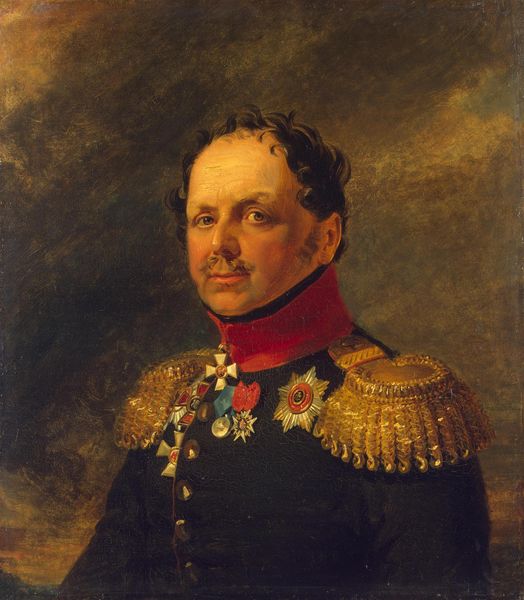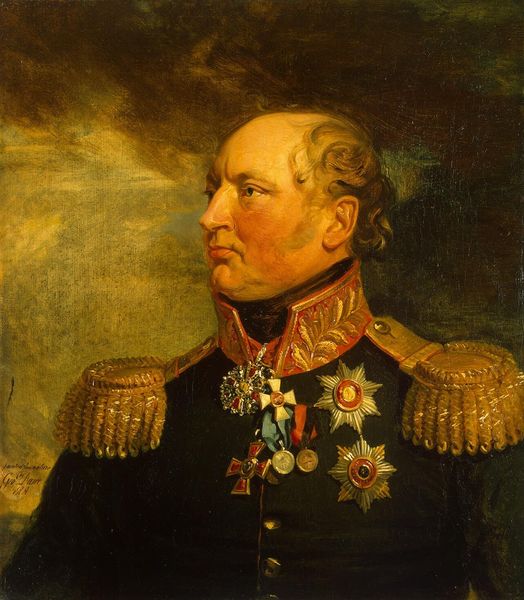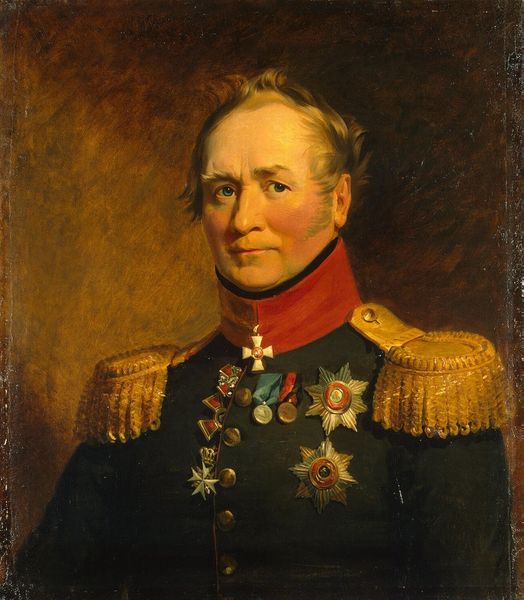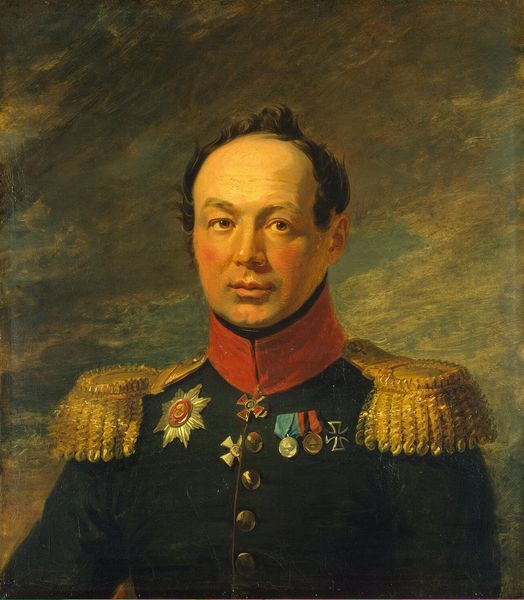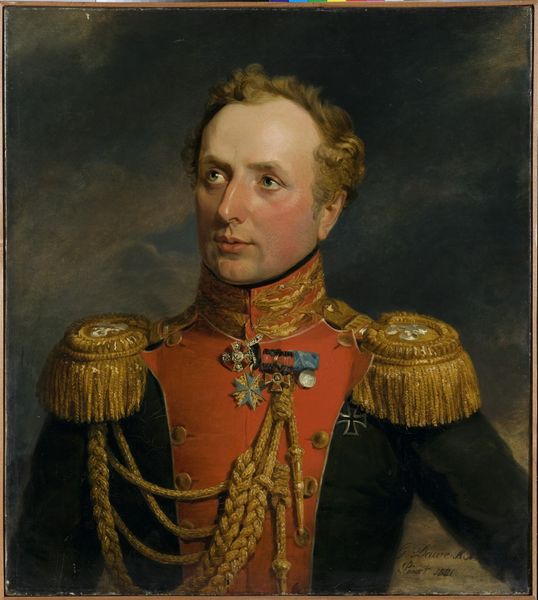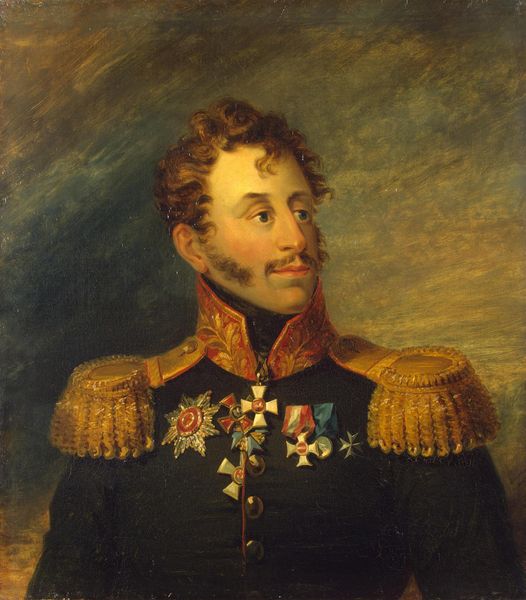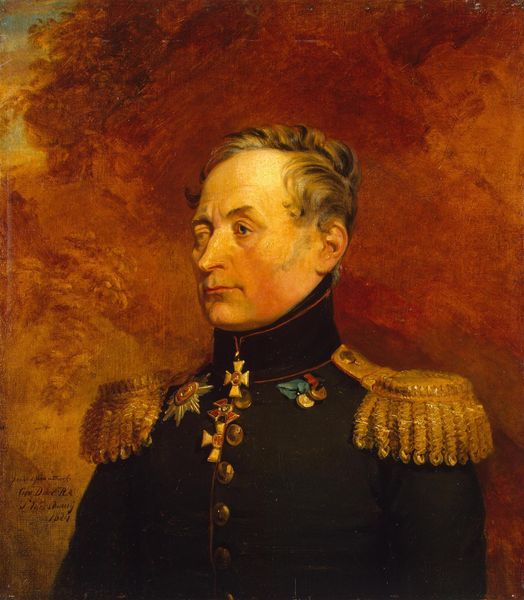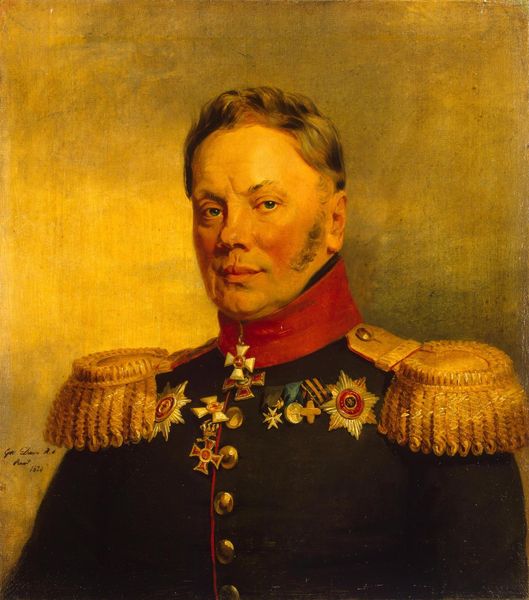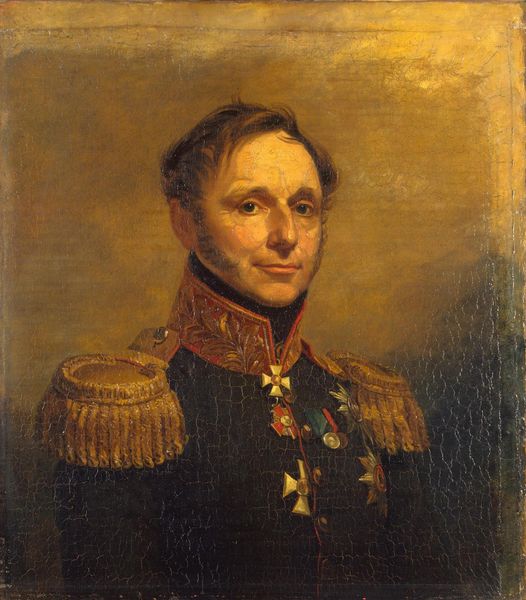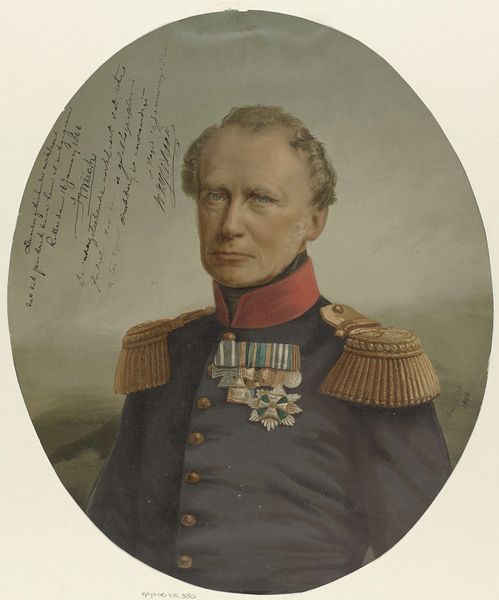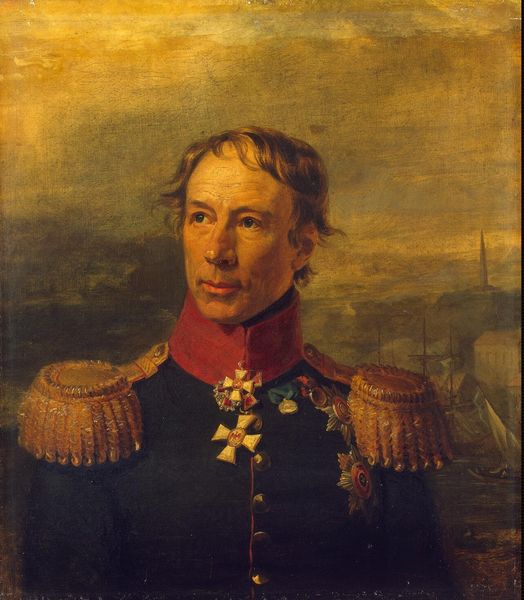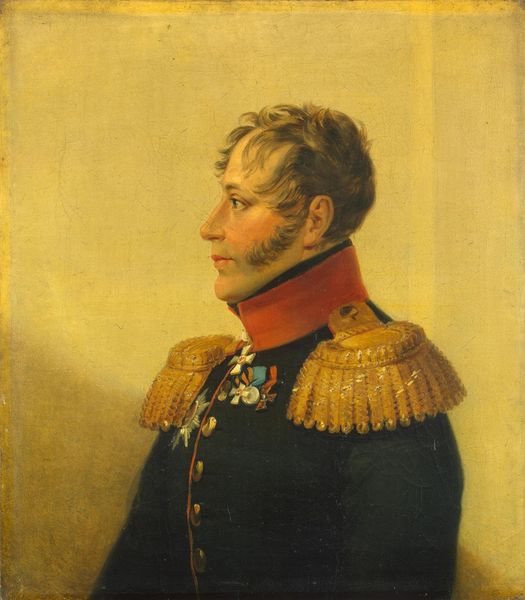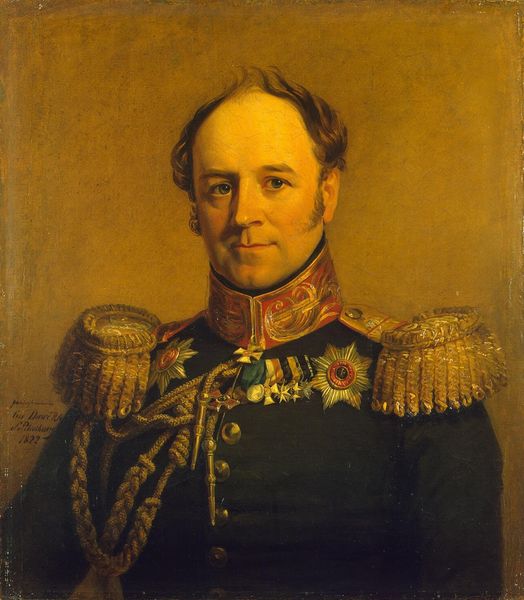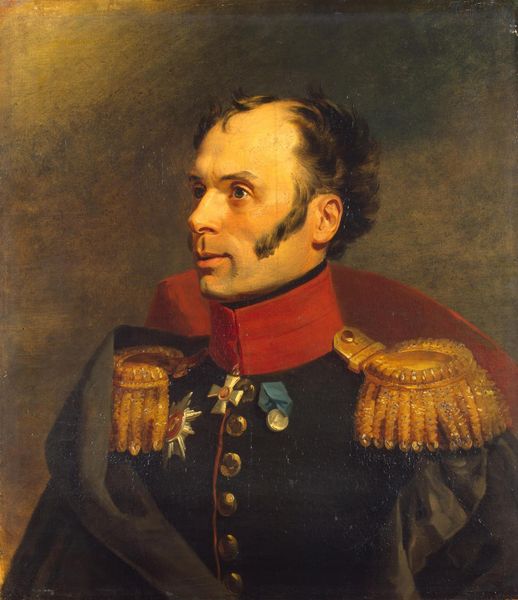
Portrait of Konstantin Von Benckendorff, Russian Lieutenent General and Diplomat 1826
0:00
0:00
oil-paint
#
portrait
#
oil-paint
#
oil painting
#
romanticism
#
history-painting
Copyright: Public domain
Editor: This is a portrait of Konstantin Von Benckendorff, painted in 1826 by George Dawe. The oil paint gives the figure a very stoic and almost cold presence. What's your take? Curator: Well, consider the context. This is not just a portrait; it's a representation of power. Benckendorff was a Lieutenant General and diplomat, deeply embedded in the Russian political structure. Dawe, as a fashionable portraitist, was often commissioned to celebrate Imperial authority. His identity and role reflect deeply on themes of colonialism, expansion, and social hierarchy that shaped the 19th century. How might you read his stance and gaze? Editor: He seems very composed and his eyes are looking slightly off to the side, which gives me a feeling of calculated ambition. It's very telling! Curator: Exactly. What I see is how art serves power and status. Dawe skillfully captures Benckendorff’s confident demeanor, essential for legitimizing the aristocracy. These historical power structures relied on representations such as this portrait, using it as propaganda. Now, let's consider what his image, and the circumstances of its creation, have to tell us about power then, and representations of power today. Do we see similar patterns? How are things different? Editor: That's really eye-opening. I was so focused on just the image that I missed that. This definitely adds another layer to my appreciation of the portrait and the man it depicts! Curator: Indeed. These artifacts from history prompt questions about power, representation, and our current society. They invite continuous dialogue and critical thought.
Comments
No comments
Be the first to comment and join the conversation on the ultimate creative platform.
